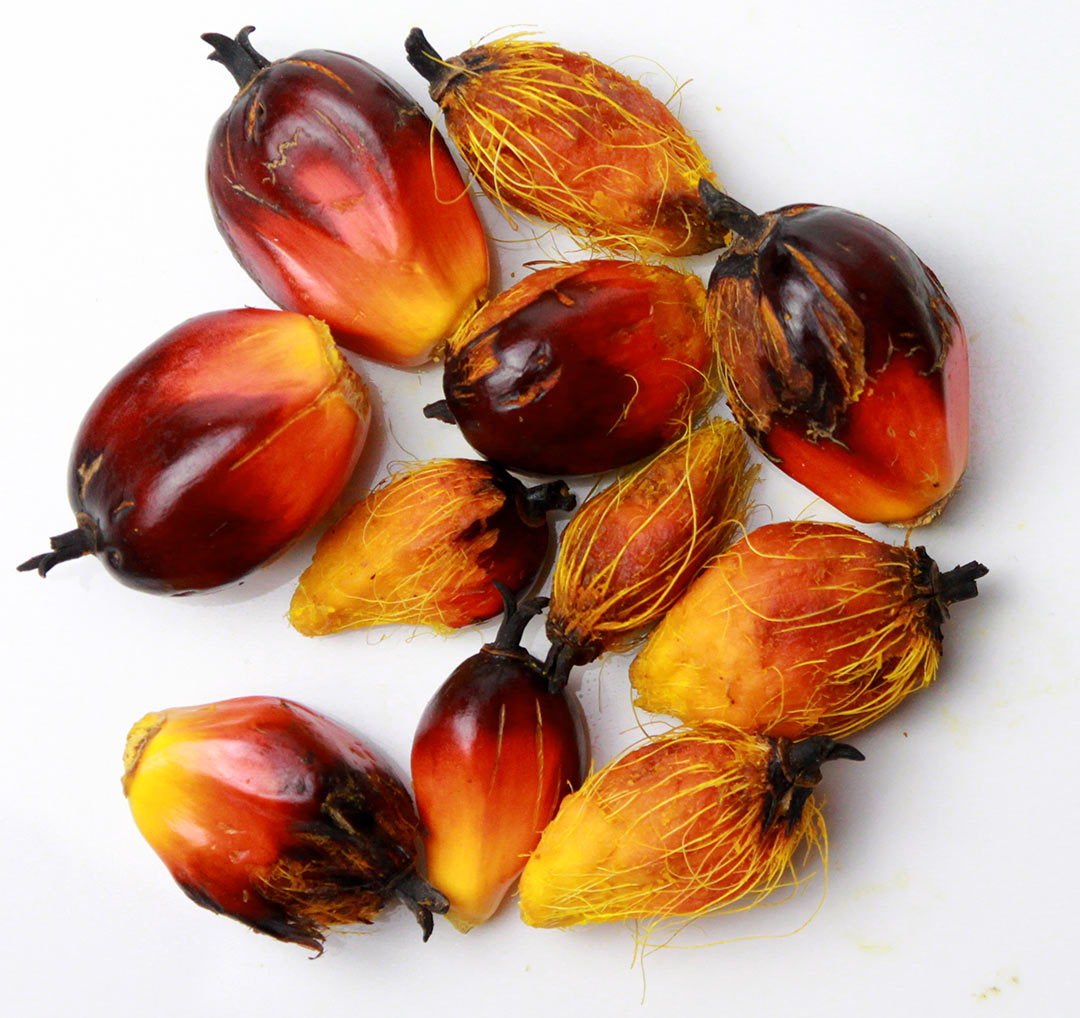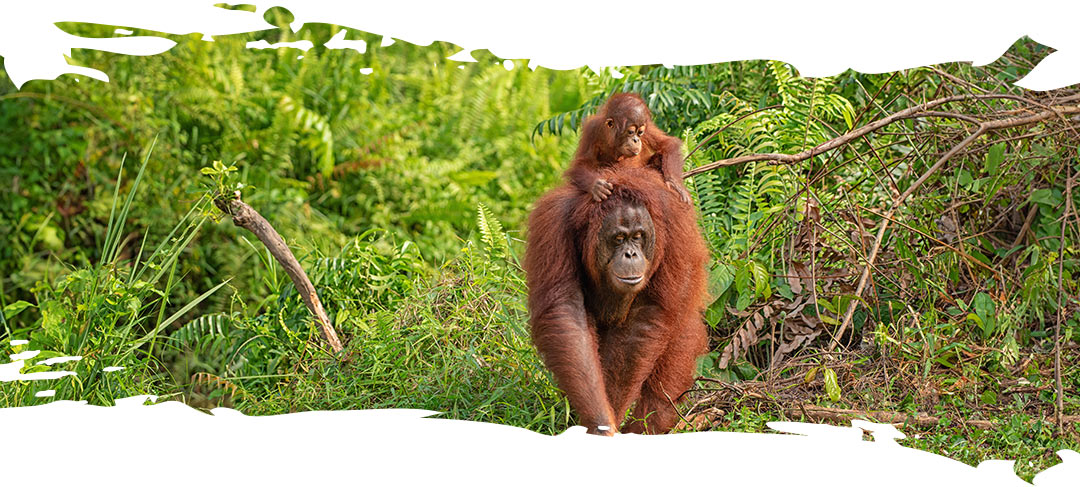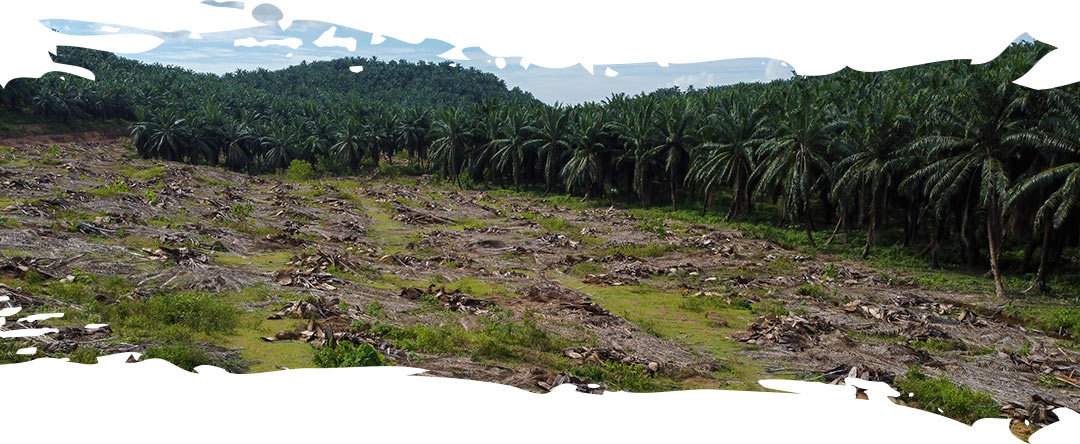At the Toronto Zoo, we are dedicated to being a sustainable palm oil facility. Our commitment extends to every item used and sold at the zoo, as we guarantee that they are verified to contain either sustainably produced palm oil or no palm oil at all. We have conducted thorough research on your behalf, ensuring that during your next visit to the Toronto Zoo, you can enjoy your experience without any concerns about palm oil.
What is Palm Oil?

- Palm oil comes from the fruit of the African oil palm tree (Elaeis guineensis).
- Palm oil is a form of edible vegetable oil that is inexpensive and efficient, making it the world’s most widely used vegetable oil.
- Majority of all palm oil is grown and produced in Borneo and Sumatra (Orangutan habitat) however crop plantations are expanding into Africa and Latin America.
- Palm oil can be found in almost everything, including food products, plastics, detergents, shampoos, and cosmetics.
What is the problem with Palm Oil?

- Global demand pressures are driving the production of palm oil up to an all-time high. Palm oil is now the most widely produced edible oil.
- When done sustainably, palm oil is our best option for an edible vegetable oil, requiring less land, pesticides and fertilizers than other oil alternatives.
- When done unsustainably, millions of acres of rainforest in Borneo and Sumatra are cut down each year to plant more oil palm.
- The increased demand for non-sustainable palm oil is fueling destruction of the rainforest where Sumatran, Bornean, and Tapanuli orangutans live.
- If something isn’t done soon to stop the spread of non-sustainable palm oil plantations, orangutans and many other endangered species will be in peril.
Why the Toronto zoo does not support a boycott?
- Oil palms are the most productive type of all the edible oil crops, producing 4 to 10 times more oil per acre than other crops like soy or canola making it a more environmentally friendly oil.
- If grown the right way – sustainably – palm oil can be the best choice for vegetable oil.
- Palm oil is a huge part of the economy for Indonesia and Malaysia which are struggling with poverty. Without it, millions of additional people would be unemployed.
- There will always be a demand for edible oil, and this demand will continue to grow as the world’s population grows. Since palm oil is in many of the items we eat and use every day, if we boycott palm oil, another less productive crop will take its place.
Check out our Orangutan Friendly Shopping Guide!
Toronto Zoo Position
The Toronto Zoo realizes that the production of palm oil may result in deforestation, loss of biodiversity and greenhouse gas emissions. Sustainable palm oil products come from plantations that have been certified by a third-party organization like the Roundtable on Sustainable Palm Oil (RSPO) that ensures the whole palm oil manufacturing process follows certain criteria. These criteria include:
- no primary forest or areas which contain significant concentrations of biodiversity (e.g. endangered species) can be cleared;
- limited use of pesticides and slash and burn practices for pest control;
- fair treatment and wages for workers;
- communication and consultation with local communities before the development of new plantations on their land;
- routine reporting on practices.

The consumption of palm oil and its byproducts is increasing around the world. Conservation action is required now to prevent numerous species of plants and animals from becoming extinct. As Canada’s largest zoo and a national leader in saving wildlife, the Toronto Zoo is in an excellent position to raise awareness about the palm oil crisis and provide the tools and information needed to allow Zoo visitors and stakeholders to make globally responsible consumer choices.
The Toronto Zoo also recognizes the importance the palm oil industry has on the economy in the areas where it is grown. Putting a stop to the industry without first establishing sustainable alternatives would threaten the livelihoods of local people and potentially put the environment at further risk by driving communities to play a role in illegal activities such as wildlife trade. Transforming the market to a sustainable and traceable supply of palm oil is the most responsible way to go.
Rationale
Palm oil itself is not the problem, but where and how it is grown needs to change. Unsustainable palm oil cultivation is a significant threat to biodiversity as it is a major cause of deforestation. The forests of Southeast Asia are filled with a rich diversity of flora and fauna and it is these forests that are disappearing at an alarming rate. Clearing of land for palm oil cultivation in Southeast Asia has increased in the last few decades and has even spread to tropical South America and Africa.

Creating a market for Certified Sustainable Palm Oil (CPSO) is the first step to ensuring that the palm oil industry impacts as little as possible on the biodiversity of the regions it is grown in. The Roundtable on Sustainable Palm Oil (RSPO) is a multi-stakeholder organization with members that include palm oil producers, processors and traders, social and environmental organizations, retail companies and more. It was created as a way in which palm oil can be certified as “sustainable” – Certified Sustainable Palm Oil (CSPO) – via a third-party verified certification. This certification is improving the environmental responsibility of the palm oil market. The Food and Agricultural Organization (FAO) defines sustainable agricultural practices as maintaining or enhancing three categories: economic viability, the natural resource base and other ecosystems influenced by agriculture.
Toronto Zoo Action

The Toronto Zoo supports the following strategies to engage visitors and stakeholders to help break the link between palm oil production and deforestation:
- provide tools that allow every person to advocate for deforestation-free palm oil;
- make deforestation-free palm oil a social norm;
- inspire people to act by providing them with information and tools that will allow them to make responsible consumer choices for the betterment of the environment;
- facilitate change through stakeholder engagement and dialogue;
- lead by example by implementing deforestation-free palm oil practices within Zoo operations;
- encourage and support our suppliers to use CSPO or other sustainable alternatives, and over time eliminate the use or sale of products with unsustainable palm oil where a viable alternative exists.
What you can do?
Use the Cheyenne Mountain Zoo Palmoil Scan App to check if your favorite products use sustainable palm oil
PalmOil Scan Mobile App - CMZoo
Send letters!